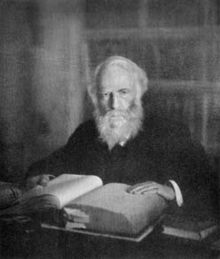Sir Mountstuart Grant Duff | |
|---|---|
 | |
| Governor of Madras Presidency | |
| In office 5 November 1881 – 8 December 1886 | |
| Governors General | The Marquess of Ripon, The Earl of Dufferin |
| Preceded by | William Huddleston (acting) |
| Succeeded by | Robert Bourke |
| Under-Secretary of State for the Colonies | |
| In office 23 April 1880 – 26 June 1881 | |
| Monarch | Queen Victoria |
| Prime Minister | William Ewart Gladstone |
| Preceded by | The Earl Cadogan |
| Succeeded by | Leonard Courtney |
| Under-Secretary of State for India | |
| In office 8 December 1868 – 17 February 1874 | |
| Monarch | Queen Victoria |
| Prime Minister | William Ewart Gladstone |
| Preceded by | The Lord Clinton |
| Succeeded by | Lord George Hamilton |
| Member of Parliament for Elgin Burghs | |
| In office 1857–1881 | |
| Monarch | Victoria |
| Preceded by | George Skene Duff |
| Succeeded by | Alexander Asher |
| Personal details | |
| Born | Mountstuart Elphinstone Grant Duff 21 February 1829 Eden, Aberdeenshire, Scotland |
| Died | 12 January 1906 (aged 76) Chelsea, London, England |
| Political party | Liberal |
| Spouse | Anna Julia Webster |
| Children | 8, including Claire Grant Duff |
| Parent(s) | James Grant Duff Jane Ainslie |
| Alma mater | Balliol College, Oxford |
Sir Mountstuart Elphinstone Grant Duff GCSI, CIE, PC, FRS (21 February 1829 – 12 January 1906), known as M. E. Grant Duff before 1887 and as Sir Mountstuart Grant Duff thereafter, was a Scottish politician, administrator and author. He served as the Under-Secretary of State for India from 1868 to 1874, Under-Secretary of State for the Colonies from 1880 to 1881 and the Governor of Madras from 1881 to 1886.
The son of the distinguished British historian James Grant Duff, he was educated at Grange School and Balliol College, Oxford, before being called to the English bar. He practised and taught law for a short time before starting a political life and entering the House of Commons as the Liberal Member of Parliament for Elgin Burghs.
His abilities won him government positions and he was Under-Secretary of State for India, Under-Secretary of State for the Colonies and Governor of Madras. His performance in politics and administration has received mixed reviews during the 1880s: "a politician of brilliant promise and scant performance, of wide information which he seemed to turn to much account, of abilities which would have made the fortunes of half a dozen men and of which he made little enough."[1]
On his return from Madras, he retired from politics and served in various art and scientific societies, before passing away in 1906.
- ^ J McCarthy, England, (2009), Bibliobooks reprint